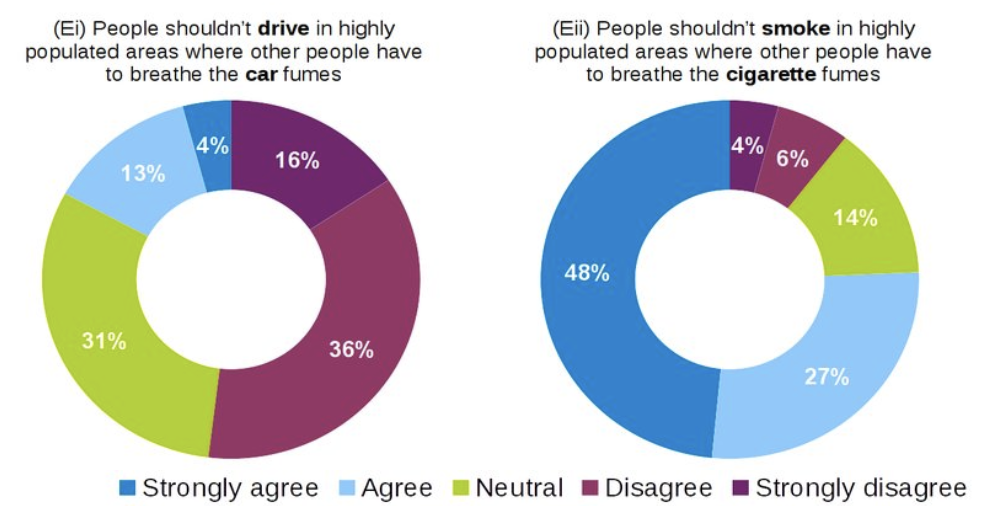How social norms hide a public health hazard
Cars mess with your brain and make what's normally unacceptable socially acceptable.
Motornormativity is the term given in a recent study by Ian Walker, Alan Tapp and Adrian Davis. It's a phenomenon to describe how the unconcious biases have favour cars. This podcast gives a good dive into the subject and there's a great Twitter thread from the author.
This is something we'll probably revisit multiple times in the future. But let's cover what the survey dove into. They asked 2 groups of people some questions, with just one word changed. The first groups was asked:
"People shouldn't smoke in highly populated areas where other people have to breathe the cigarette fumes"
And the second group was asked:
"People shouldn't drive in highly populated areas where other people have to breathe the car fumes"
The only change in this case was smoke to drive and cigarette to cars.

75% of people don't want other people smoking in cities and having to inhale those fumes. Yet for cars the situation is complete reversed with only 17% of people having a similar feeling.
There were many questions in the study, but this is one of biggest disparaties. People won't tolerate second hand smoke, but will tolerate it from cars.
This was repeated on questions about alchohol, working, theft and so on. In each case cars were allowed a free pass. For example:
"Risk is a natural part of driving, and anybody driving has to accept they could be seriously injured." vs "Risk is a natural part of working, and anybody working has to accept they could be seriously injured".
61% of respondents said they agree with that for driving. For working the number drops 31%. We have public institutions and laws to prevent workplace accidents and injuries and have successfully reduced injuries over the years.
This shows that people aren't using the ethical standards universally. We also saw this during the pandemic when people on social media made comments similar to "As many people die from driving as from COVID, but we don't stop people driving". Without thinking that we should stop people from dying when they drive, neither is acceptable.
Driving has become socially acceptable as dangerous to us and the plant.
Growing up surrounded by that environment, people internalise the idea that fast, untrammelled, near-consequence-free motoring is normal and, moreover, people conclude that this must surely be the proper way of things
Dr Ian Walker, Source
This thinking of it being normal they call "Motornormativity".